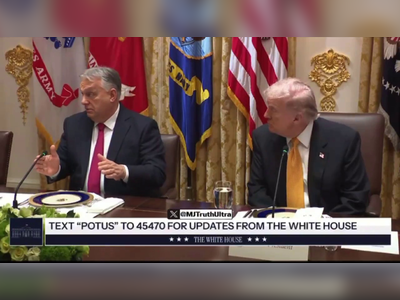
U.S. House Moves Forward with Legislation to Restrict Transgender Student Athletes' Involvement in Sports
The Republican-controlled House approves legislation intended to limit transgender girls and women from participating in school sports, but its prospects in the Senate are still unclear.
The U.S. House of Representatives has approved a contentious bill designed to limit transgender girls and women from participating in school sports, sparking a nationwide discussion on the rights of transgender student athletes.
The bill, called the 'Protection of Women and Girls in Sports Act of 2025,' passed with a 218-206 vote, largely along party lines. However, two Democrats, Henry Cuellar and Vicente Gonzalez, broke ranks to support it.
Now, the bill heads to the Senate, where its fate is uncertain due to the filibuster rule, which requires most legislation to reach a 60-vote threshold.
Republicans, including Speaker Mike Johnson, are advocating for the legislation, using religious arguments as justification for the restrictions.
"We know from Scripture and from nature that men are men and women are women, and men cannot become women," Johnson stated after the vote.
The bill intends to amend Title IX, the significant 1972 law prohibiting sex-based discrimination in education, by defining gender solely on one's 'reproductive biology and genetics at birth.' This would effectively prohibit transgender women from participating in women’s sports.
While it allows transgender women to practice with female sports teams, it specifies that they must not 'deprive' female athletes of competitive opportunities.
The bill has become a focal point in the ongoing political debate over transgender rights, with critics arguing that it discriminates against transgender students and could lead to excessive government involvement in individuals’ gender identities.
Transgender rights have become increasingly contentious in U.S. politics, especially in sports, where prominent cases, such as Lia Thomas’ win in the 2022 NCAA women’s swimming championship, have incited intense debate.
Currently, 25 states have enacted laws restricting transgender athletes' participation in school sports, attracting significant attention.
The bill also raises concerns among some Democrats, like Representative Pete Aguilar, who cautioned that it might result in unnecessary 'government inspections' of transgender students, a concern shared by opponents who believe it violates privacy rights.
Transgender athletes already face varying regulations at different competitive levels.
The National Collegiate Athletic Association (NCAA) determines eligibility based on individual sports and guidance from international sports organizations, though many argue these rules are inconsistent and inadequate.
Despite the House's approval, the bill's path in the Senate is uncertain.
Although Republicans control the chamber, the bill requires significant bipartisan support to overcome the filibuster rule, casting doubt on its success.
Democratic senators have voiced strong opposition, with some pledging to vigorously oppose the bill.
The introduction of this measure highlights the increasing prominence of transgender issues in U.S. politics, especially as the LGBTQ+ community continues to seek broader legal protections.
In a symbolic act, Democratic Representative Sarah McBride was sworn in as the first openly transgender member of Congress earlier this month, drawing attention to the intersection of LGBTQ+ rights and governance.
As this legislative conflict progresses, the debate over transgender rights in sports is set to remain a central topic in the American political sphere.
The bill, called the 'Protection of Women and Girls in Sports Act of 2025,' passed with a 218-206 vote, largely along party lines. However, two Democrats, Henry Cuellar and Vicente Gonzalez, broke ranks to support it.
Now, the bill heads to the Senate, where its fate is uncertain due to the filibuster rule, which requires most legislation to reach a 60-vote threshold.
Republicans, including Speaker Mike Johnson, are advocating for the legislation, using religious arguments as justification for the restrictions.
"We know from Scripture and from nature that men are men and women are women, and men cannot become women," Johnson stated after the vote.
The bill intends to amend Title IX, the significant 1972 law prohibiting sex-based discrimination in education, by defining gender solely on one's 'reproductive biology and genetics at birth.' This would effectively prohibit transgender women from participating in women’s sports.
While it allows transgender women to practice with female sports teams, it specifies that they must not 'deprive' female athletes of competitive opportunities.
The bill has become a focal point in the ongoing political debate over transgender rights, with critics arguing that it discriminates against transgender students and could lead to excessive government involvement in individuals’ gender identities.
Transgender rights have become increasingly contentious in U.S. politics, especially in sports, where prominent cases, such as Lia Thomas’ win in the 2022 NCAA women’s swimming championship, have incited intense debate.
Currently, 25 states have enacted laws restricting transgender athletes' participation in school sports, attracting significant attention.
The bill also raises concerns among some Democrats, like Representative Pete Aguilar, who cautioned that it might result in unnecessary 'government inspections' of transgender students, a concern shared by opponents who believe it violates privacy rights.
Transgender athletes already face varying regulations at different competitive levels.
The National Collegiate Athletic Association (NCAA) determines eligibility based on individual sports and guidance from international sports organizations, though many argue these rules are inconsistent and inadequate.
Despite the House's approval, the bill's path in the Senate is uncertain.
Although Republicans control the chamber, the bill requires significant bipartisan support to overcome the filibuster rule, casting doubt on its success.
Democratic senators have voiced strong opposition, with some pledging to vigorously oppose the bill.
The introduction of this measure highlights the increasing prominence of transgender issues in U.S. politics, especially as the LGBTQ+ community continues to seek broader legal protections.
In a symbolic act, Democratic Representative Sarah McBride was sworn in as the first openly transgender member of Congress earlier this month, drawing attention to the intersection of LGBTQ+ rights and governance.
As this legislative conflict progresses, the debate over transgender rights in sports is set to remain a central topic in the American political sphere.
AI Disclaimer: An advanced artificial intelligence (AI) system generated the content of this page on its own. This innovative technology conducts extensive research from a variety of reliable sources, performs rigorous fact-checking and verification, cleans up and balances biased or manipulated content, and presents a minimal factual summary that is just enough yet essential for you to function as an informed and educated citizen. Please keep in mind, however, that this system is an evolving technology, and as a result, the article may contain accidental inaccuracies or errors. We urge you to help us improve our site by reporting any inaccuracies you find using the "Contact Us" link at the bottom of this page. Your helpful feedback helps us improve our system and deliver more precise content. When you find an article of interest here, please look for the full and extensive coverage of this topic in traditional news sources, as they are written by professional journalists that we try to support, not replace. We appreciate your understanding and assistance.









